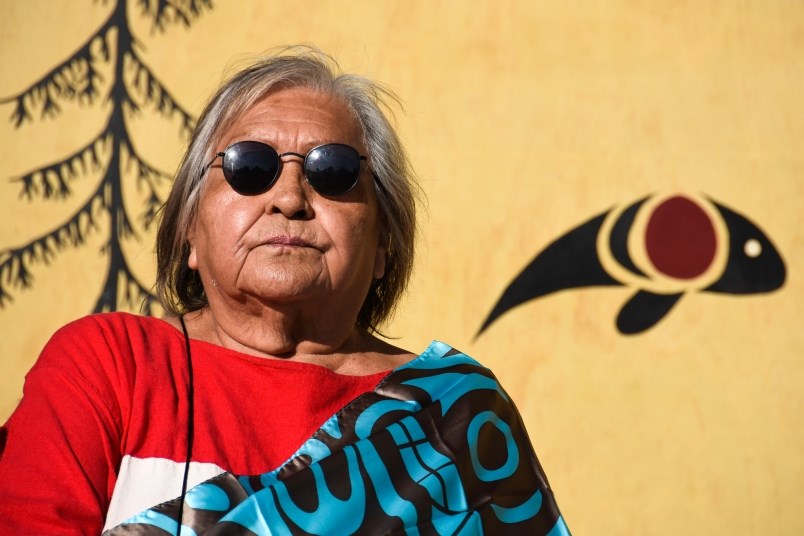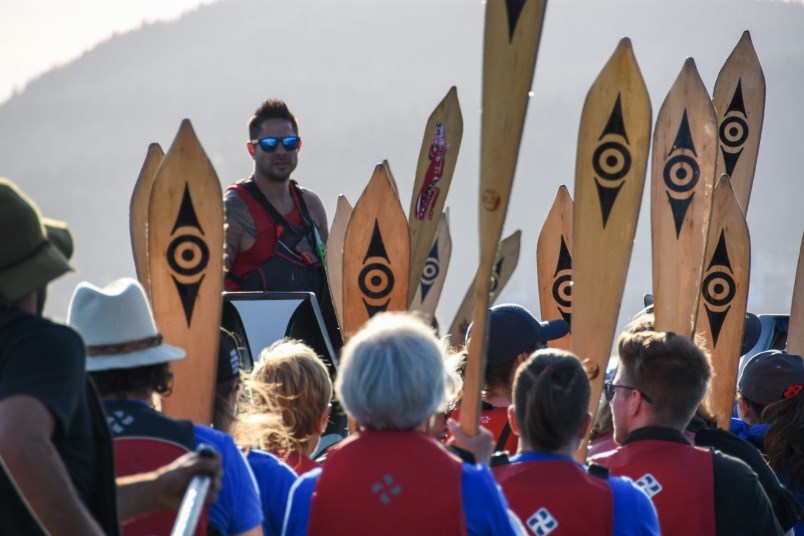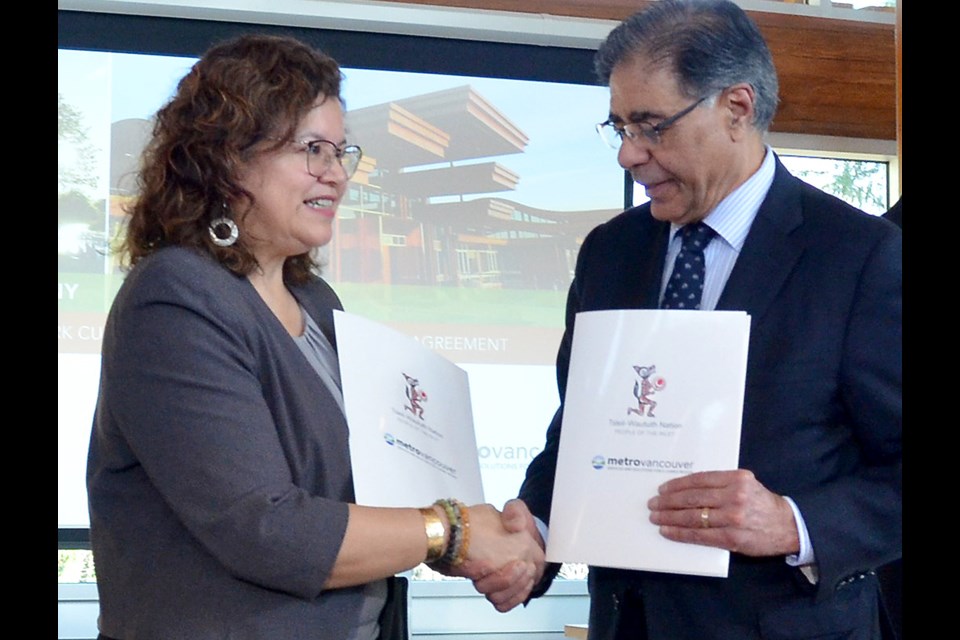Long before White Pine Beach was a summer hot spot and the surrounding forested trails a hiker’s dream, Belcarra Regional Park in Port Moody was the site of the largest winter village of the Tsleil-Waututh Nation.
Now, in what’s being described as a historic agreement between the Tsleil-Waututh Nation and Metro Vancouver, the two governments are looking to reassert the First Nation’s ancestral footprint on the territory.
And for the First Nation that's most closely associated with the North Shore, it's a chance to highlight its roots on this side of Burrard Inlet.
“Tsleil-Waututh means 'people of the inlet.' It doesn't mean the North Shore. It means 'of the inlet,'” Tsleil-Waututh member Ernie George told The Tri-City News, pointing to the nation’s ancestral footprint in the Tri-Cities. “It’s not a big distance. All of our village sites always interacted. The inlet was our highway.
“You're protected in that area. You're out of the weather,” George said of the land that comprises Belcarra Regional Park. “Tsleil-Waututh people would stay there through the winter and once spring started coming, the people would disperse and go do what it is Tsleil-Waututh did: gather and be stewards of the land.”

When, in the mid-1800s, smallpox ran up the West Coast, it decimated the First Nation. The village site, now within the boundaries of Port Moody but traditionally known as təmtəmixʷtən (pronounced Tum-tumay-wa-ton) or “the biggest place for all the people,” had its residents forcibly removed and brought to a reserve on what is now Vancouver's North Shore.
About 150 years later, the site falls within the park’s 1,100 hectares — that's nearly triple the size of Vancouver’s Stanley Park — and has become a popular Tri-City destination that sees more than one million visitors every year.
Now, through a "Cultural planning and Co-Operation Agreement" — the first of its kind for Metro Vancouver — both levels of government will work together to protect, preserve and enhance the regional park over an initial five-year period.
“We recognize that there's no better environmental and cultural stewards of the territory than the Tsleil-Waututh Nation,” said Metro Vancouver board chair Sav Dhaliwal. “With their wealth of knowledge, ancestral knowledge how to care for the land and water and air, they bring huge expertise which we can benefit from.”
Part of that will include preserving archaeological and spiritually important sites as well as educating the public on the historical ties to the Tsleil-Waututh. How that rolls out will be up to the Tsleil-Waututh as they lead the process. Metro Vancouver manages the park and so will bear any costs associated with the agreement.

This is not the first time Metro Vancouver and the First Nation have come together on issues facing the park. Both sides have been working together on a variety of projects since 2016, including plans for a picnic area built on the old village site. George, who was recently made chief administrative officer of the nation, was one of two Tsleil-Waututh members who opened the conversation with the regional government.
In an interview with The Tri-City News, George pointed to two similar management agreements the First Nation already has in place as evidence of how this agreement could work: the 2001 Cates Park/Whey-ah-Wichen agreement with the District of North Vancouver; and the 2010 Say Nulth Khaw Yum/Indian Arm Provincial Park agreement with B.C. Parks.
At Cates Park, the Tsleil-Waututh have replanted trees after major wind storms, re-established traditional canoe races and through Takaya Tours, runs the only First Nations kayak and canoe tour business in the Lower Mainland — all examples, says George, that could be replicated and expanded upon at the Belcarra Regional Park, where Takaya already rents kayaks.

Some other ideas for Belcarra include repurposing a historic house at the park into an artist-in-residence program or museum.
“It's in its initial stages. We're going get together and start really looking at how to implement the ideas we have, understand what is possible,” said George. “We want to be able to be on the ground there.”
According to Metro Vancouver, the agreement does not do away with any treaty rights or infringe upon any existing land claims.
“This is something that we believe is also the foundation of other similar agreement that we will try to do to secure with the with other Coast Salish First Nations,” said Dhaliwal, adding he couldn’t speak to the existence of any other ongoing negotiations.



